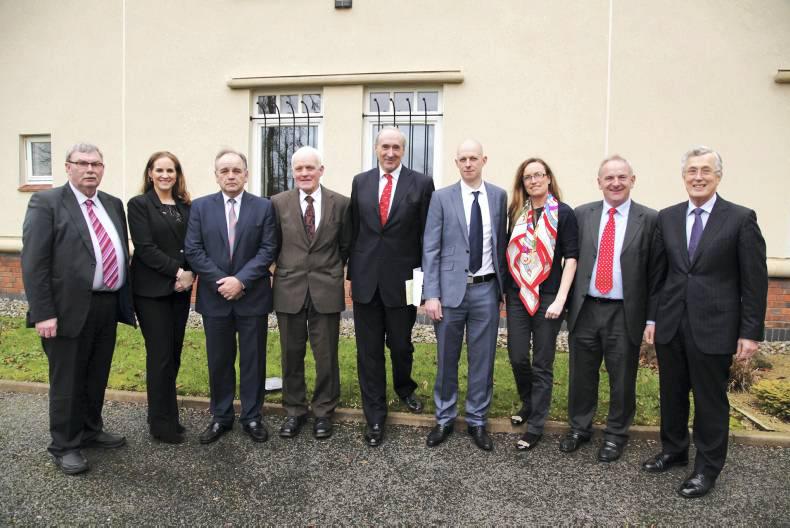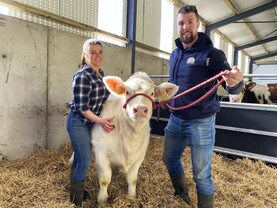“The biggest challenge I see in the next five to 20 years is how we are going to sustainably feed the world’s population,” said Tony Doyle from Country Crest. “We will have to feed 34% more people than we have in the world today by 2050 with less good land.”
That fact alone justifies the Basic Payment Scheme under the Common Agricultural Policy, the Lismullin Farming Seminar heard. Water and energy are the main limiting factors for world food production going forward.
“Sustainable production implies the use of a resource at rates that do not exceed the earth’s capacity to produce them,” said Doyle. “Can we as farmers afford to grow food at the quality we are currently doing?”
The agricultural economic model in Europe focuses on “producing commodities at the lowest possible price, emanating from World War II.”
“The world has to face the reality that we have to be able to afford to feed the world sustainably,” said Doyle. “The producers at the bottom of the chain are constantly trying to squeeze more and more out of 100 acres.”
So what do we need to do to become more sustainable?
Optimise our use of waterOptimise our use of landReduce food waste (food waste in 2020 will be 12m tonnes)Country Crest
Country Crest was formed by Gabriel and Michael Hoey in 1994. It is a fourth-generation family farm in North County Dublin that grows and pre-packs potatoes and onions for the retail sector. 60% of the energy on the farm is currently provided by their own windmill and they should soon reach their aim of 100% sustainable electricity usage.
Many technological advances have contributed to sustainable production on the farm. For example, using GPS in soil test applications, they can test each section of land and apply only what chemicals are needed in that section.
Between Country Crest and sister company Ballymaguire Foods, the business employs 240 people, one of whom is employed full-time to segregate waste. They recently received planning permission for an anaerobic digestor.
“We put an emphasis on recycling and segregation of waste. It has an income stream for the business too,” said John Hagan. “Most of the vegetable washing is done with recycled water and we have a water treatment plant for the cookery end of the business. We compost onion waste and spread it on the land in April and May and we have planning permission for an anaerobic digestor.”
As one of the founding and originally certified members of Origin Green, the Country Crest ethos is to have an integrated system. They have a fully integrated beef unit for the pre packed meals and they have a working relationship for trading wheat, chicken litter and poultry meat with Manor Farm.
To encourage biodiversity Country Crest has created a wetland area on a three hectare site with a pond and 2,000 native Irish trees.
“The biggest challenge I see in the next five to 20 years is how we are going to sustainably feed the world’s population,” said Tony Doyle from Country Crest. “We will have to feed 34% more people than we have in the world today by 2050 with less good land.”
That fact alone justifies the Basic Payment Scheme under the Common Agricultural Policy, the Lismullin Farming Seminar heard. Water and energy are the main limiting factors for world food production going forward.
“Sustainable production implies the use of a resource at rates that do not exceed the earth’s capacity to produce them,” said Doyle. “Can we as farmers afford to grow food at the quality we are currently doing?”
The agricultural economic model in Europe focuses on “producing commodities at the lowest possible price, emanating from World War II.”
“The world has to face the reality that we have to be able to afford to feed the world sustainably,” said Doyle. “The producers at the bottom of the chain are constantly trying to squeeze more and more out of 100 acres.”
So what do we need to do to become more sustainable?
Optimise our use of waterOptimise our use of landReduce food waste (food waste in 2020 will be 12m tonnes)Country Crest
Country Crest was formed by Gabriel and Michael Hoey in 1994. It is a fourth-generation family farm in North County Dublin that grows and pre-packs potatoes and onions for the retail sector. 60% of the energy on the farm is currently provided by their own windmill and they should soon reach their aim of 100% sustainable electricity usage.
Many technological advances have contributed to sustainable production on the farm. For example, using GPS in soil test applications, they can test each section of land and apply only what chemicals are needed in that section.
Between Country Crest and sister company Ballymaguire Foods, the business employs 240 people, one of whom is employed full-time to segregate waste. They recently received planning permission for an anaerobic digestor.
“We put an emphasis on recycling and segregation of waste. It has an income stream for the business too,” said John Hagan. “Most of the vegetable washing is done with recycled water and we have a water treatment plant for the cookery end of the business. We compost onion waste and spread it on the land in April and May and we have planning permission for an anaerobic digestor.”
As one of the founding and originally certified members of Origin Green, the Country Crest ethos is to have an integrated system. They have a fully integrated beef unit for the pre packed meals and they have a working relationship for trading wheat, chicken litter and poultry meat with Manor Farm.
To encourage biodiversity Country Crest has created a wetland area on a three hectare site with a pond and 2,000 native Irish trees.






 This is a subscriber-only article
This is a subscriber-only article










SHARING OPTIONS: